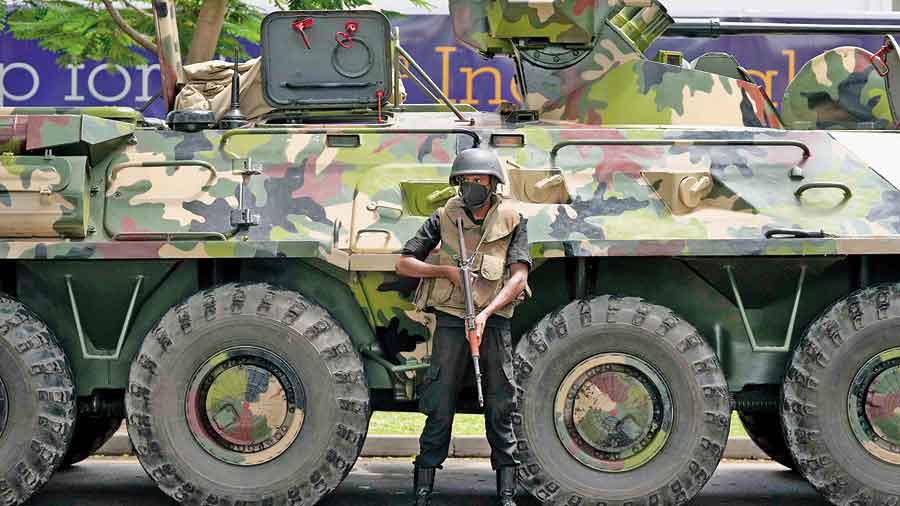A nationwide curfew was fully lifted on Sunday to allow Sri Lankans to celebrate the Buddhist festival of Vesak, while new Prime Minister Ranil Wickremesinghe assembled a cabinet to resolve the island nation’s economic and political crisis.
The curfew was imposed on May 9 after deadly clashes that forced Mahinda Rajapaksa to resign as premier, leaving his brother, Gotabaya Rajapaksa, to rule on as President.
Many public and private buildings were flying the multi-coloured Buddhist flag, while residents visited temples dressed in all-white for Sunday’s festival, which commemorates the birth, enlightenment, and death of the Buddha.
More than a month of predominantly peaceful anti-government protests turned violent at the beginning of last week when supporters of the former Prime Minister stormed a protest camp in Colombo, torching tents and beating protesters. The clashes, and reprisals against government figures, left nine dead and more than 300 injured.
Police have arrested about 230 people in connection with last week’s violence, police spokesman Nalin Thalduwa said on Sunday.
“Police stations country-wide have been ordered to increase patrols and continue vehicle and people checks. There are more arrests taking place as investigations into the violence continue,” he said.
Global assistance
New Prime Minister Wickremesinghe, 73, held discussions with the World Bank and the Asian Development Bank, his office said in a statement on Sunday.
“The discussions with the organisations focused on assistance for the issues facing the supply of medicine, food and fertiliser,” the statement said.
Wickremesinghe, who has previously led the country five times, made his first cabinet appointments on Saturday.
As the only lawmaker from his United National Party in the country’s Parliament, he is reliant on support from the Rajapaksas’ Sri Lanka Podujana Peramuna to form a government.
Saturday’s four cabinet
appointments, who were all from the Rajapaksas’ party, have failed to satisfy protesters, who want the family removed from national politics.











